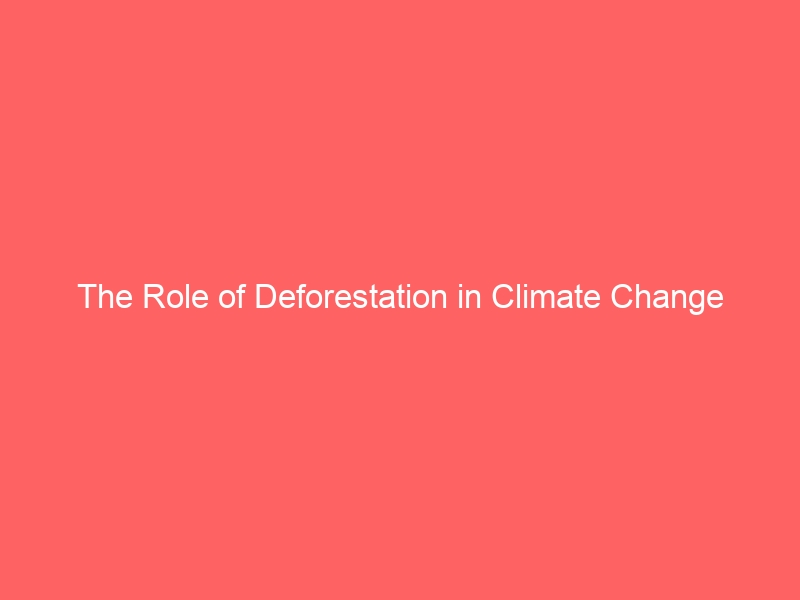Deforestation is a significant factor contributing to climate change. The practice of clearing forests for agriculture, logging, and urban development not only destroys vital ecosystems but also releases large amounts of carbon dioxide (CO2) into the atmosphere. This process is one of the leading causes of global warming and its associated impacts on the planet.
When trees are cut down and burned or left to decay, the stored carbon within them is released as CO2. This contributes to the greenhouse effect, where the Earth’s atmosphere traps heat and causes the planet to warm. In fact, deforestation is responsible for roughly 10% of global greenhouse gas emissions, making it a major driver of climate change.
In addition to releasing CO2, deforestation also affects the Earth’s ability to absorb and store carbon. Trees and other vegetation act as natural carbon sinks, absorbing CO2 from the atmosphere and locking it away in their biomass and soil. When forests are cleared, this important function is disrupted, leading to increased levels of CO2 in the atmosphere.
Furthermore, deforestation can also lead to changes in local and regional climate patterns. The loss of forests can result in decreased evapotranspiration, which is the process by which plants release water vapor into the atmosphere. This can lead to reduced rainfall and altered weather patterns, affecting both local ecosystems and the global climate system.
The impact of deforestation on climate change is particularly acute in tropical regions, where some of the world’s most biodiverse and carbon-rich forests are located. The Amazon rainforest, for example, plays a crucial role in regulating the Earth’s climate by absorbing and storing vast amounts of carbon. However, deforestation rates in the Amazon have been increasing, driven by factors such as agricultural expansion and illegal logging, posing a significant threat to the global climate system.
Efforts to address deforestation and its role in climate change are essential for mitigating the impacts of global warming. Initiatives such as REDD+ (Reducing Emissions from Deforestation and Forest Degradation) aim to incentivize forest conservation and sustainable management practices in developing countries, thereby reducing emissions from deforestation and preserving vital carbon sinks.
In conclusion, the role of deforestation in climate change cannot be overstated. The destruction of forests not only releases large amounts of CO2 into the atmosphere but also disrupts the Earth’s natural carbon cycle and affects regional climate patterns. Addressing deforestation is crucial for mitigating the impacts of climate change and preserving the health of the planet for future generations. By protecting and restoring forests, we can take meaningful steps towards a more sustainable and resilient global climate.







